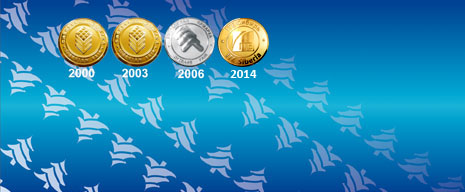 |
 |
Investigation of Speech Culture of Personality in Line with Continuing Education: Axiological Aspect
Problem statement concerns the search for ways and means of improving the speech and communicative culture of a person via triad of language/and — speech activity — communication. Goal: Substantiation of a valuebased approach to investigating the realities of an increasingly globalizing unpredictable world of multiculturalism and multilingualism based on the functioning of integration processes and positive cultural communication at different levels of interaction of all the participants of the educational process. Research methods: Integration, becoming an increasingly promising trend of improving the communicative culture of the individual, actualizes the methodological emphasis in lingua didactic research. This context primarily is associated with the growing importance of a personality formation in culture within the choice of language/s of communication and self-expression, the reproduction of cultural traditions and values, as well as with the teacher’s willingness to comprehend and transfer the cultural code and experience as a significant indicator of the formation of a teacher-mentor. Research methods cover a critical analysis of literary sources on the issues, modeling and designing communicative situations of the event-based educational space, generalization and replication of innovative culturally oriented pedagogical practices, to neutralize the professional deficits of teachers, students of programs in terms of the perspective of language, speech and communicative competencies to be developed. The scientific novelty in the aspect of cultural self-determination of an individual considers the development of non-native languages/cultures and linguistic/speech traditions as a key value of the humanitarian continuous training of a modern person. The theoretical significance lies in expanding and clarifying the concept of “methodological readiness of a teacher-mentor” due to the inclusion of an intellectual component (cognitive abilities) for positive self-development, for a critical analysis of the unpredictable reality, for cultural interactive speech activity, in terms of humanistic pedagogy. The practical significance lies in determining the foundations for a teacher’s speech-making position in the context of the integration of two educational programs, additional professional and secondary vocational education system. Results: The approbation of a three case studies value model for the formation of the methodological readiness of a teacher of foreign languages as a complex - psychological, pedagogical, didactic and methodological – readiness for implementing within new challenges and new responsibilities. Studying the perception by stakeholders of two joint educational professional programs, program “Linguistics: theory and methodology of teaching foreign languages” and the training program of the Foreign Language educational system, this study presents a balanced assessment of the quality of education within the framework of these programs, based on the dual nature of the opportunities and barriers associated with integration. Conclusions consider an attempt to neutralize the gap within the research on the integration of the educational landscape of innovative practices of both institutions. Keywords: humanization, communicative culture, 4K, methodological readiness of a pedagogue
Сайт поддерживается в Новосибирском институте повышения квалификации и переподготовки работников образования и является участником Новосибирской открытой образовательной сети